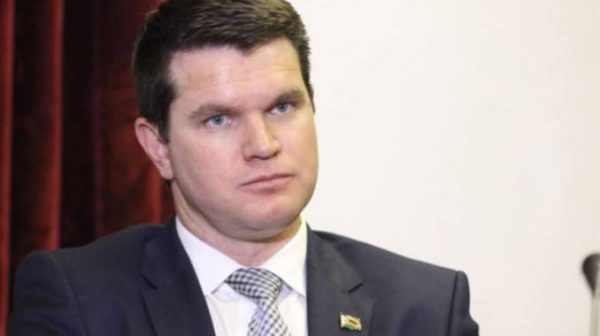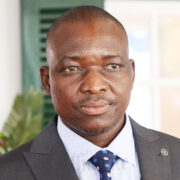Oil, gas euphoria: Chances are just 10pc

ALTHOUGH Invictus Energy, the Australian firm scouring the earth for oil and gas in Zimbabwe’s Muzarabani area, says geological studies have shown the area holds significant potential to host hydro-carbons, it has remained cautiously optimistic, pointing out the chance of a commercial discovery is only 10 percent per each site drilled.
Results from further processing of geological data gathered by French oil giant, Mobil, in the early 1990’s and further primary data which Invictus collected and similarly used international experts to interpret, have shown encouraging potential for hydro-carbon deposits in the area, exploration drilling must still be undertaken to prove this.
After Mobil’s survey three decades ago, Invictus carried further studies when it conducted another seismic study (gathering sub-surface vibrations using modern equipment), which entailed much denser line spacing to pinpoint locations with the highest potential for petroleum.
With the study results showing strong potential that the area has what it takes to host petroleum deposits, excitement has been palpable at Invictus, more so within Government, given the implications of a commercial discovery on the fiscus, local area development, job creation, national energy security, export revenue and national economy.
Invictus plans to start exploration drilling in Muzarabani-Mbire around the end of June or early July this year at a cost of US$25 million. Mobilisation of British firm, Ezalo’s rig number 202, is scheduled to begin mid-May from Tanzania’s Songo Songo area where it is currently undertaking some contracted work.
Geo-Associates, Invictus Energy’s controlling shareholder, director Paul Chimbodza, told delegates in Muzarabani during a tour of the oil and gas site this week, arranged by the Australian firm’s board of directors (led by chairman Stuart Lake), senior Government officials and local traditional leaders that they were not sure yet if the area holds petroleum deposits or not.
He said Invictus, after refining the data gathered by Mobil and evaluating the data it collected through the seismic study it carried out in the area last year, the company made the decision to proceed to exploration drilling based on the encouraging study findings.
“The information that we now have has said to us we must go ahead and drill (exploration wells). In the game of exploration, I want to emphasise the word “Exploration”. You win some, you lose some, but the important thing is, we are geologists and earth scientists, our job is to find what the good Lord has hidden underground there.
“And, if you do not explore, you do not find. So, it is our game, and thanks to Dr Stuart Lake and his team for making the funds available for us to embark on such a high risk exercise.
Where we are now is we have now signed up for a (drilling) rig that has been doing some work in Tanzania where they are also looking for hydro-carbons or oil and gas.
“The plan is for that rig to start mobilising from Tanzania, a place called Songo Songo on the 15th of May (2022). The rig will go on a barge on the waters and it will be brought down to Beira (Mozambique) and then from Beira, the rig will move by road and come down to Muzarabani – Mbire.
“The plan is for us to start drilling when the rig is on site. It is going to take us two to three weeks to rig it up and start the actual drilling, which we plan to start sometime late June or early July. At this stage the plan is for us to do two wells, these wells are quite deep wells,” he said.
The first well will be four kilometres deep and the second, shallower one, will be roughly two kilometre deep. Conventional borehole water wells get to 100 metres for the deepest ones, Chimbodza said.
“These two wells are going to be critical, the question that we always get asked is ‘Is the oil/gas present in the area?’) And when we tell people we do not know, they think we are not telling the truth. Yes, we have got all these sophisticated equipment that we use, but the ultimate answer is actually in the drilling, which we hope to do in June or July.
“If we do find (oil or gas) there will be much more drilling to follow that, there could be more seismic work after drilling, where we do what we call appraisal of the basin. So, the two wells are exploration wells; anything that follows that is appraisal drilling.
“What will that do for the people that are gathered here? Most of them do not worry about the technicalities that we worry about. People want to know what this means for MbireMuzarabani.
“We always refer to this project (Muzarabani-Mbire oil and gas project) as a potential game changer, not only for Muzarabani or Mbire, but for Zimbabwe and the region.
“Once we have a commercial discovery our hope is that Zimbabwe can be energy sufficient as far as electricity is concerned. We know how our country has been battling with power cuts.
“With the Muzarabani-Mbire project being successful, it is very easy for us to be able to generate enough electricity, not only for the whole of Zimbabwe but probably pushing that into the region.
“We will be self-sufficient in terms of our fuels, but that’s the dream ahead of the work that we want to do in June and July. It is a very critical stage, a very costly stage.
“It will cost us in the region of about US$25 million to do these wells and the chances of success are about 10 percent, hence we spent a lot of time being so meticulous about where we must drill or where we are going to drill,” Chimbodza said.
Invictus chief executive, Scott MacMillan, said the company’s prospective area had potential to host 9,25 trillion cubic feet of gas and nearly 300 million barrels of condensate, essentially light oil. He said a trillion cubic feet of gas could generate 5oo megawatts for 20 years.
The company’s prospective area is considered probably the largest undrilled seismic structure onshore Africa. Invictus chairman Stuart Lake said the fact that chances of success were slim, was the reason the company had taken its time to refine geological data from Mobil and also invested in further evaluation studies to pick the right spots to drill.
Drilling results may show two kinds of success; commercial success where the quantities can be economically exploited and technical success where deposits are found to exist in quantities that are not sufficient to sustain commercial exploitation of the hydrocarbons.
Notably though, a dry hole; an exploratory or development well found to be incapable of producing either oil or gas in sufficient quantities to justify completion as an oil or gas well, does not necessarily mean the end of oil and gas search for a particular basin.
Whether the well is a “duster”, dry hole, depends on many factors of the economic equation, including proximity to transport and processing infrastructures, local market conditions, expected completion costs, tax and investment recovery conditions of the jurisdiction and projected oil and gas prices during the productive life of the well.
MacMillan said in the event of a dry hole, Invictus would undertake technical evaluation to understand the reasons for the unproductive exploration, which may entail determining if the area is completely devoid of potential to host hydrocarbons or whether the area proves to be holding petroleum deposits, but a richer target should be located and explored further.
As such, a dry hole does not necessarily result or call for a basin to be abandoned. For instance, Dr Lake said Namibia eventually made commercial discovery after initially drilling 30 dry holes while South Africa achieved success following earlier dry holes number a staggering 200.
TotalEnergies has made a significant discovery of light oil with associated gas on the Venus prospect, located in block 2913B in the Orange Basin, offshore southern Namibia. Similarly, Total has made a significant gas condensate discovery on the Brulpadda prospects, 175 kilometers off the southern coast of South Africa
.


